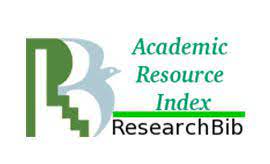Automated construction of educational narratives as a means of informational and analytical support of extracurricular education
DOI:
https://doi.org/10.51707/2618-0529-2024-30-05Keywords:
educational narrative, ontology, cognitive services.Abstract
Extracurricular education plays an important social role in society and helps the younger generation to discover and develop their individual interests and talents, which provides a unique opportunity to acquire vital knowledge and skills. However, in order to achieve a more positive effect, extracurricular education should be integrated with academic disciplines of general education institutions, which are based on state educational standards. This allows students not only to better assimilate the information received at school, to enrich and deepen their knowledge, but also to apply it in real life. Thus, teachers of extracurricular educational institutions are required not only to possess knowledge specific to their field, but also to have a deep understanding of relevant state educational programs to create comprehensive and balanced educational courses. Therefore, in order to increase the efficiency of their work, it is advisable to use information and analytical support using modern technological solutions, in particular, cognitive information technology “POLYEDR”. This technology allows to automate the process of processing and analyzing large amounts of information, in particular, educational programs and materials. Cognitive services deployed on the basis of this technology allow creating ontologies of educational narratives, which are offered as the basis of such information and analytical support. Such ontologies allow structuring and systematizing knowledge in an educational context. They identify key concepts and categories used in curricula and make connections between them, helping to create more organized and coherent learning materials that are better understood by students. It also allows you to identify and visualize the relationships between different educational courses and subjects, which is especially important for the development of integrated educational programs. The use of ontologies of educational narratives can significantly increase the personalization of learning, as they allow educators to adapt extracurricular courses to the individual needs and preferences of students. By knowing how knowledge is related to each other and how they influence each other, teachers can more effectively tailor lessons to the abilities and interests of their students.
References
Zakon Ukrainy Pro pozashkilnu osvitu : pryiniatyi 22 Chervn. 2000 roku № 1841-III [Law of Ukraine оn extracurricular education from June 22 2000, № 1841-III]. Retrieved from https://zakon.rada.gov. ua/laws/show/1841-14#Text [in Ukrainian].
Agrawal, S. (2016). Is There a Need of Harmonization of Postgraduate Dermatology Curriculum in Nepal? Nepal Journal of Dermatology, Venereology & Leprology, 14, 1, 2–4. DOI: https://doi.org/10.3126/njdvl.v14i1.15806.
Grdzelidze, I., & Alavidze, N. (2016). “Harmonizing Quality Assurance Strategies in Georgia with Standards for Quality Assurance in the European Higher Education Area (ENQA)” — Dissemination strategy in the framework of tempus project. 10th International Technology, Education and Development Conference. (pp. 898–901). Valencia, Spain. DOI: https://doi.org/10.21125/inted.2016.1204.
Ndaipa, C. J., Edström, K., Langa, P., & Geschwind, L. (2023). Internationalisation of the curriculum in higher education: A case from a Mozambican university. Cogent Education, 10, 1. DOI: https://doi.org/10.1080/2331186X.2023.2188773.
Galambos, C., & Greene, R. R. (2006). A Competency Approach to Curriculum Building. Journal of Gerontological Social Work, 48, 1–2, 111–126. DOI: https://doi.org/10.1300/J083v48n01_08.
Nieveen, N., & Kuiper, W. (2021). Integral Curriculum Review in the Netherlands: In Need of Dovetail Joints. Curriculum Making in Europe: Policy and Practice within and Across Diverse Contexts, 125–150. DOI: https://doi.org/10.1108/978-1-83867-735-020211007.
Cathrin, S., Wikandaru, R., Listiana, I., Ratnasari, D., Warsidah, W., Widyoningsih, W. et al. (2021). Harmonization of the Education Curriculum at Pesantren Al Falah Gorontalo: An Educational Philosophy Study. KnE Social Sciences, 436–450. DOI: https://doi.org/10.18502/kss.v6i2.10007.
Milenkovic, S., Mijailovic, G., & Nikolic, M. (2016). The Harmonization and Modernization of the Curriculum for Teacher Training in Serbia Through Tempus Teach Project. 10th International Technology, Education and Development Conference. (рр. 3760–3767). Valencia, Spain. DOI: https://doi.org/10.21125/inted.2016.1900.
Compton, R. (2002). Discovering the promise of curriculum integration: The national curriculum integration project. Conflict Resolution Quarterly, 19, 4, 447–464. DOI: https://doi.org/10.1002/crq.3890190405.
Prykhodniuk, V. V., & Horborukov, V. V. (2022). Recursive reduction method as a component of linguistic support of information-analytical systems. Academic Studies. Series “Humanities”, 2, 98–103. DOI: https://doi.org/10.52726/as.humanities/2022.2.14.
Downloads
Published
How to Cite
Issue
Section
License
Copyright (c) 2024 Scientific notes of Junior Academy of Sciences of Ukraine

This work is licensed under a Creative Commons Attribution 4.0 International License.













